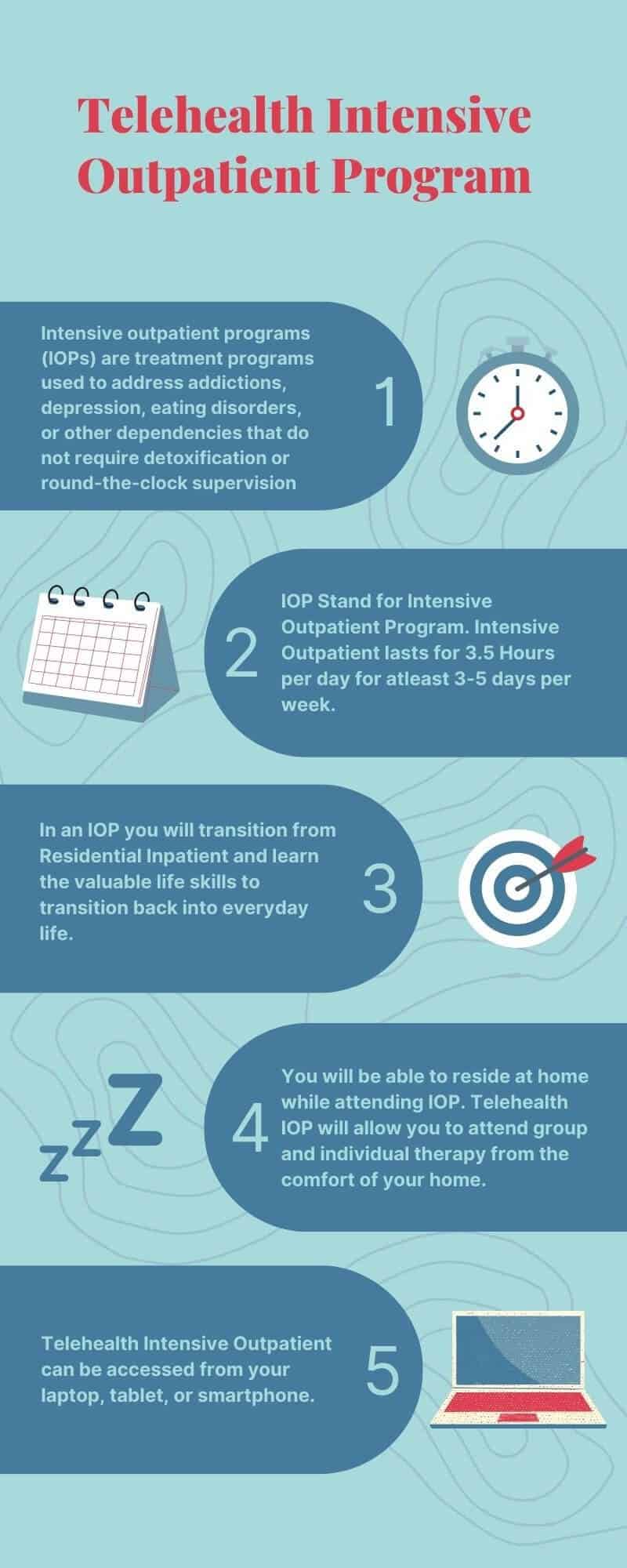Navigating the Intricacies of Double Medical Diagnosis Therapy Within an Intensive Outpatient Program Establishing
In the world of psychological health and dependency therapy, the intersection of twin diagnosis presents a nuanced challenge that demands an extensive and tailored method. By exploring the ins and outs of twin medical diagnosis therapy within this extensive outpatient context, a more clear course arises in the direction of all natural and lasting healing for those grappling with these intertwined challenges.
Dual Medical Diagnosis Review

Understanding double diagnosis is essential as it calls for a comprehensive and incorporated strategy to treatment. By recognizing the interaction between material use and mental wellness, healthcare providers can tailor treatments to meet the special needs of each individual. This all natural method not just addresses symptoms however also targets underlying factors that add to the double medical diagnosis.
Moreover, untreated twin diagnosis can bring about a cycle of relapse and aggravating mental wellness signs. By identifying the complexity of dual medical diagnosis and offering specialized treatment, medical care specialists can sustain people in achieving long-term recovery and improved psychological wellness.
Tailored Treatment Plans
Acknowledging the complex interaction between compound usage problems and psychological wellness problems, the growth of customized therapy plans is critical in attending to the complexities of dual diagnosis in mental wellness therapy. Customized therapy plans are personalized strategies that consider the unique demands, obstacles, and objectives of individuals facing dual medical diagnosis. These strategies are developed collaboratively by a multidisciplinary team of professionals, consisting of psychoanalysts, psycho therapists, social workers, and addiction specialists, to make certain thorough and incorporated care.
Tailored therapy strategies normally include a combination of treatments, medicines, and behavioral treatments that target both the material usage disorder and the mental wellness problem all at once. These strategies may include cognitive-behavioral therapy, dialectical behavior modification, medication-assisted therapy, individual counseling, group treatment, and family members treatment, to name a few evidence-based treatments. By personalizing treatment approaches to individual conditions, tailored strategies can attend to the origin of double diagnosis, promote long-term recovery, and improve overall lifestyle for people fighting with co-occurring conditions.
Integrated Care Technique
An integrated care technique in dual diagnosis treatment combines medical, emotional, and social treatments to resolve the intricate demands of individuals with co-occurring substance usage disorders and mental health conditions. This strategy acknowledges that treating one aspect of a twin medical diagnosis without attending to the various other can result in inefficient outcomes. By incorporating medical interventions such as medicine monitoring for mental health problems with emotional therapies like cognitive-behavioral treatment for compound use conditions, individuals receive detailed care that targets all elements of their dual medical diagnosis.
Additionally, the social facet of integrated care includes attending to ecological variables that might contribute to the advancement or perpetuation of about his compound usage and psychological health issues. This can include household dynamics, housing instability, or lack of social support. By integrating social interventions like household treatment, employment assistance, and community resources, the therapy becomes much more holistic and tailored to the individual's specific needs. In general, an integrated care method in double medical diagnosis treatment within an intensive outpatient program visit this site right here setting aims to offer detailed, reliable, and individualized care to people facing co-occurring problems.
Difficulties in IOP Establishing
In the context of double medical diagnosis treatment within an extensive outpatient program, browsing the complexities of co-occurring compound usage disorders and psychological wellness problems offers significant difficulties. Among the main difficulties in the IOP setting is the control of care between psychological health and wellness professionals and material abuse experts to guarantee a comprehensive therapy technique. This needs effective interaction, partnership, and a deep understanding of how these problems interact and affect each other.

Moreover, resolving preconception and resistance to therapy within the IOP setup can hinder progression. Some individuals might be reluctant to reveal their twin medical diagnosis or might feel embarrassed, hindering their interaction in the healing process. Getting over these barriers requires an encouraging and non-judgmental environment that promotes trust fund and additional hints openness.

Collaborative Professional Efforts
Reliable twin diagnosis treatment in an intensive outpatient program necessitates seamless collaboration among mental health professionals and chemical abuse experts to guarantee a detailed and incorporated technique to care (Intensive Outpatient Program (IOP)). This cooperation is critical to resolve the intricate interaction in between psychological health and wellness conditions and chemical abuse, as both aspects need to be dealt with simultaneously for effective results. Mental health and wellness experts bring proficiency in identifying and treating mental wellness problems, while drug abuse professionals have actually specialized expertise in resolving dependency concerns. By collaborating, these professionals can create individualized treatment strategies that provide to the special demands of each individual, taking into consideration both their psychological wellness and compound abuse challenges.
Collaborative initiatives likewise extend to regular interaction and information sharing amongst employee to guarantee a natural treatment strategy. This might include case conferences, joint sessions with the person, or shared paperwork to track progress and change therapy methods as needed. In addition, collaboration may consist of entailing various other healthcare experts such as medical care medical professionals or household specialists to provide alternative assistance to the patient. Eventually, an unified front of specialists working with each other boosts the effectiveness of double diagnosis therapy within an extensive outpatient program.
Verdict
Finally, efficient twin medical diagnosis therapy within an extensive outpatient program setup needs customized therapy strategies and an incorporated treatment strategy. Obstacles might emerge in this setting, however collective initiatives amongst experts can aid navigate these intricacies. By resolving the one-of-a-kind demands of individuals with co-occurring mental health and material utilize conditions, IOP programs can provide extensive and holistic like sustain recuperation and general well-being.
Comments on “Discover the Perks of an Intensive Outpatient Program (IOP) for Recovery”